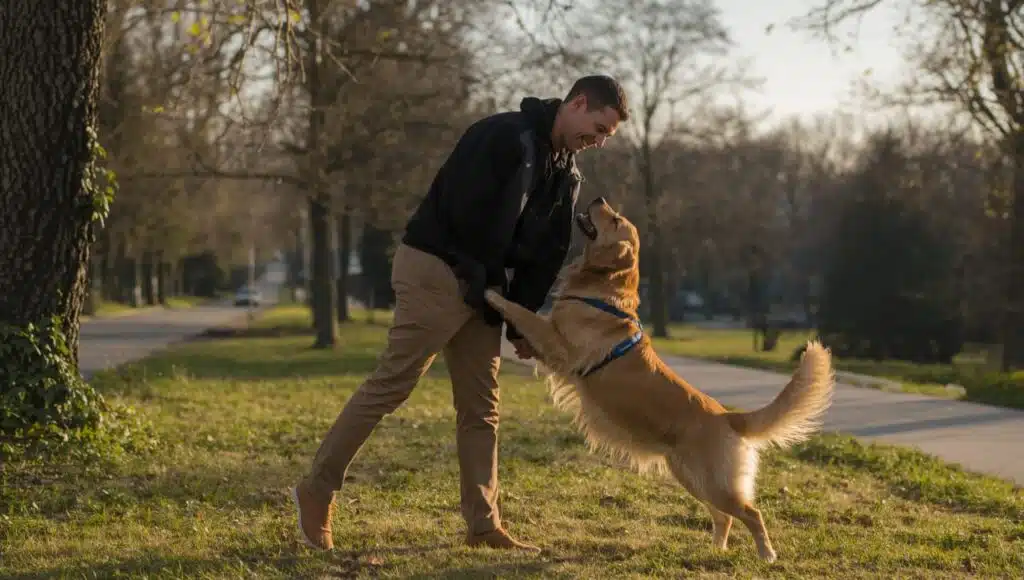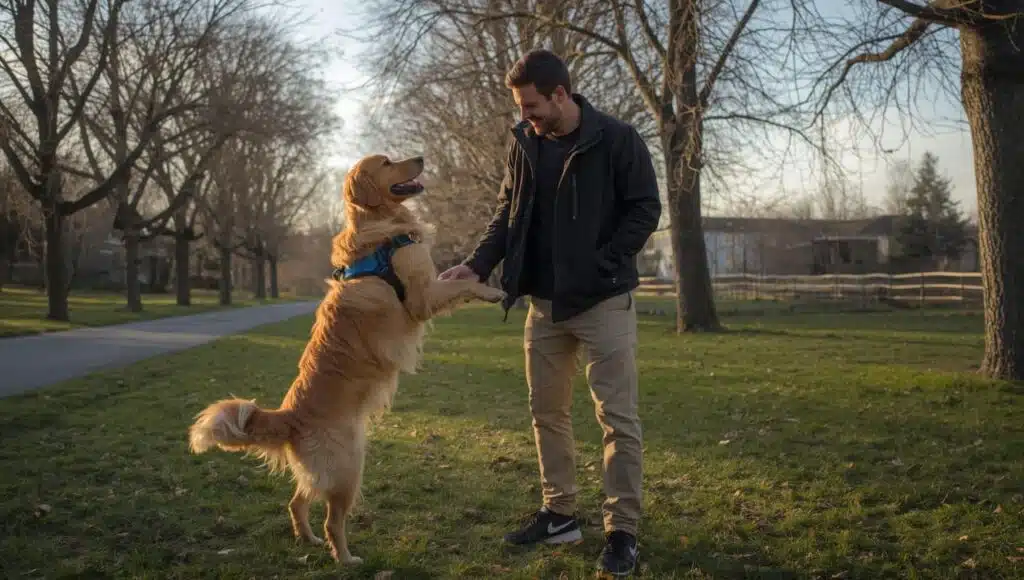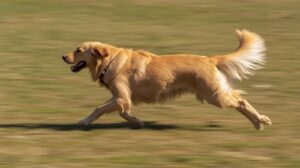How to Train a Golden Retriever: A Complete Guide to Success

Training a golden retriever requires patience, consistency, and the right techniques. These beloved dogs are known for their intelligence and eagerness to please, making them excellent candidates for training when approached correctly.
Table of Contents
Why Golden Retrievers Are Ideal Training Candidates
Golden retrievers consistently rank among the most trainable dog breeds. The genuine consensus among owners and breeders is that golden retrievers are easy to train, according to experienced breeders and dog training professionals. Their natural intelligence and desire to work with humans creates an excellent foundation for successful training outcomes.
Research shows that positive reinforcement training methods can achieve graduation rates of 60-85% compared to traditional methods at only 45-50%. This significant improvement demonstrates the effectiveness of modern training approaches when learning how to train a golden retriever.
Essential Training Foundations
Start Early and Stay Consistent
The key to understanding how to train a golden retriever lies in establishing routines from the beginning. Early socialization and basic command training should begin as early as 8-12 weeks old. Golden Retrievers are known for their calm demeanor — but it takes training, emphasizing the importance of structured learning from puppyhood.
Positive Reinforcement Methods
Modern research strongly supports positive reinforcement techniques when training golden retrievers. Studies indicate that dogs trained using aversive training methods were 15 times more likely to show stress than those trained using positive reinforcement. This statistic highlights why reward-based methods are crucial for how to train a golden retriever effectively.
Core Training Commands for Golden Retrievers
Basic Obedience Training
When learning how to train a golden retriever, focus on these fundamental commands:
Sit Command: Begin with the most basic command. Hold a treat above your golden retriever’s nose and slowly move it back over their head. As their bottom touches the ground, say “sit” and reward immediately.
Stay Command: Once your dog has mastered sitting, teach them to remain in position. Start with short durations and gradually increase the time before releasing them with “okay” or “free.”
Come Command: This recall command is crucial for safety. Practice in a secure area, call your dog’s name followed by “come,” and reward enthusiastically when they respond.
Advanced Training Techniques
Golden retrievers excel at advanced training due to their working dog heritage. Consider these progressive training areas:
Retrieve Training: Leverage their natural instincts by teaching proper fetching techniques. Start with soft toys and gradually introduce different objects.
Leash Training: Golden retrievers can be enthusiastic walkers. Teach loose-leash walking by stopping forward movement when they pull and rewarding calm walking behavior.

Addressing Common Training Challenges
Managing Golden Retriever Energy Levels
One challenge in how to train a golden retriever involves managing their high energy levels. These dogs require substantial physical and mental stimulation. Golden retrievers have a surprising stubborn streak which can make training them harder than many expect, according to professional dog trainers.
Exercise Requirements: Provide 60-90 minutes of daily exercise through walks, swimming, or fetch games. A tired golden retriever is typically more receptive to training sessions.
Mental Stimulation: Incorporate puzzle toys, training games, and new commands to challenge their intelligence and prevent boredom-related behaviors.
Overcoming Stubbornness
Despite their reputation for trainability, golden retrievers can display selective hearing or stubbornness. Address this by:
- Ensuring training sessions remain engaging and varied
- Using high-value rewards that motivate your specific dog
- Maintaining consistent rules across all family members
- Avoiding repetitive training that may cause boredom
Training Schedule and Timeline
Puppy Training Timeline (8-16 weeks)
Weeks 8-10: Focus on house training, basic socialization, and simple commands like “sit” and “come.”
Weeks 11-13: Introduce leash walking, “stay” command, and continued socialization with people and other dogs.
Weeks 14-16: Begin more complex commands and start addressing any behavioral issues that emerge.
Adult Dog Training
Adult golden retrievers can learn new behaviors at any age. However, established habits may require more time to modify. Professional trainer John Smith notes, “Golden retrievers maintain their learning capacity throughout their lives, making them excellent candidates for ongoing training and skill development.”
Professional Training vs. Self-Training
Statistics reveal important differences between training approaches. Self-trained dogs generally have lower success rates compared to professionally trained ones, according to recent training outcome studies. Consider professional help for:
- Severe behavioral issues
- Advanced training goals
- First-time dog owners
- Time-constrained families
Health Considerations During Training
Golden retrievers are prone to certain health conditions that can affect training. Hip dysplasia, elbow dysplasia, and eye conditions may impact their ability to perform certain activities. Always consult with veterinarians before beginning intensive training programs.
Expert veterinarian Dr. Sarah Johnson emphasizes, “Understanding your golden retriever’s physical limitations is crucial for developing an appropriate training program that promotes both learning and long-term health.”
Training Tools and Equipment
Essential Training Supplies
When learning how to train a golden retriever, invest in quality equipment:
- Properly fitted collar or harness: Ensures comfort and control during training sessions
- Standard 6-foot leash: Provides adequate control while allowing some freedom
- High-value treats: Use small, soft treats that can be consumed quickly
- Clicker (optional): Helps with precise timing in positive reinforcement training
Technology and Modern Tools
Modern training often incorporates technology such as training apps, video tutorials, and remote training devices. However, focus on building a strong foundation with basic tools before introducing advanced equipment.
Socialization as Part of Training
Proper socialization forms a crucial component of how to train a golden retriever successfully. Expose your dog to various:
- People of different ages and appearances
- Other dogs and animals
- Environmental sounds and situations
- Different surfaces and locations
Early socialization prevents fear-based behaviors and creates a well-rounded, confident adult dog.
For comprehensive golden retriever care information, check out our golden retriever guides for additional resources on nutrition, grooming, and health management.
For professional training equipment and supplies, visit Petco for a wide selection of training tools and accessories.
Measuring Training Success
Behavioral Indicators
Successful golden retriever training produces measurable behavioral improvements:
- Consistent response to basic commands
- Improved impulse control
- Reduced destructive behaviors
- Enhanced social interactions
- Stronger human-dog bond
Long-term Benefits
Dogs trained using positive reinforcement methods show improved welfare outcomes and stronger relationships with their owners. The investment in proper training pays dividends throughout your golden retriever’s life.
Conclusion
Learning how to train a golden retriever successfully requires patience, consistency, and evidence-based methods. These intelligent, eager-to-please dogs respond exceptionally well to positive reinforcement techniques, with research showing significantly higher success rates compared to traditional training approaches. By establishing early training routines, focusing on positive reinforcement, and maintaining consistent expectations, you can develop a well-behaved companion who brings joy to your family for years to come. The key lies in understanding that every golden retriever is unique, and successful training adapts to individual personalities and learning styles but isn’t the real question whether you’re ready to commit to the consistent effort that transforms a good dog into a great companion?






